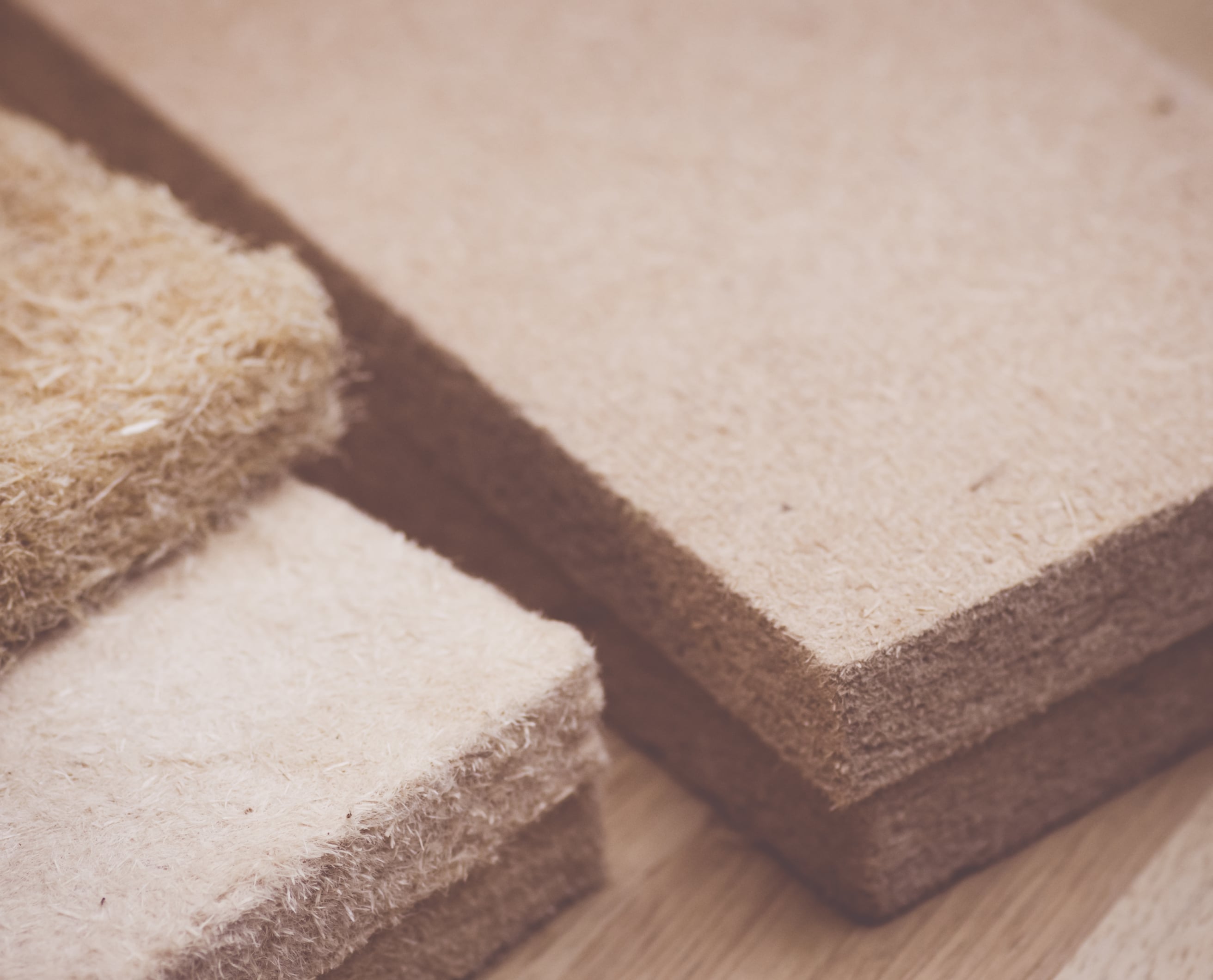Bio-based Insulators: Hemp and cellulose wadding, how to treat them?

The transition to the use of more environmentally friendly and sustainable materials is a major challenge for the construction sector. Bio-based insulating materials, such as wood, straw, hemp or cotton are perfectly part of an eco-construction approach and reveal similar performances to synthetic materials. However, the main factor in degradation of these natural materials, when used as insulation still is moisture. This is the main cause of mold and fungi, which ultimately alter and degrade the material and therefore it’s insulating performance. A treatment is therefore necessary to protect them and make them last over time. Two examples will be detailed in this Article: Hemp and Cellulose wadding.
Bio-based insulators : hemp and cellulose wadding
Isolation with hemp
Cultivated for centuries, hemp is an ecological resistant and durable material that has created for itself a prominent place in the construction industry. Used in the eco-construction and natural insulation sectors, hemp fibers are recognized as an excellent alternative to synthetic insulation.
The advantages of using hemp for insulation
High-performance natural insulator, hemp requires very little water for growth. It does not release any harmful toxins, and its cultivation is carried out without GMOs or pesticides. The benefits of using hemp are numerous:
- Low thermal conductivity: Hemp guarantees optimal protection from heat in summer and gives freshness in winter.
- High acoustic comfort: Its fibrous composition allows it to block surrounding noise.
- Moisture absorption: Hemp restores moisture to the air when the ambient climate is too dry.
- Naturally repellent against insects with xylophagous larvae and rodents.
Marketed in bulk, panels or roll, hemp can be used for insulation of attics, floors and partition walls.
Insulation with cellulose wadding
Cellulose wadding is coveted for its attractive price and its properties, it is in the same way as hemp, an excellent substitute for synthetic insulation.
The advantages of using cellulose wadding for isolation
Cellulose wadding is derived from the recycling of newsprint. First ground, then de-fibered and finally mixed with boron salt, the result of this process gives cellulose wadding. In addition to being a renewable material, its use for insulation has several advantages:
- Acoustic insulation: It slows down sound waves thanks to its flaky structure.
- Thermal insulation: Provides optimum protection against heat and cold. Thanks to its thickness, heat accumulates directly in the cellulose, it acts as an effective shield during heat waves or high heat. Its thermal phase shift qualities make it a very efficient insulator.
- Affordable price: This bio-based insulation is an excellent value for money.
Marketed in bulk or panel, cellulose wadding is recommended for the insulation of walls, floors, roofs and attic.
Bio-based insulation treatments
Although they have many advantages, cellulose wadding and hemp require specific treatments to perpetuate the quality of the insulation. Used as insulation, they are easily exposed to moisture, a factor conducive to the appearance of fungi and mold. Fungicidal treatment is then essential to protect these renewable materials.
Groupe Berkem, an expert in the treatment of materials, recognized by manufacturers and professionals, has developed SYNERKEM® technology, a composition of plant super-activators that boost the anti-fungal properties of active substances, and reduce the content of conventional biocides. This innovative technology has enabled Berkem Group to offer bio-based insulation manufacturers a specifically adapted and efficient solution: AXIL® 6110K. This fungicidal product improves the performance and resistance of bio-based insulation materials against the development of molds.
Anti-fungal treatment for hemp fibers
Thanks to the various tests carried out by Groupe Berkem R&D laboratories, it has been demonstrated that the SYNERKEM® plant solution guarantees a high level of durability of hemp fibers. The polyphenolic extracts used reduce the use of conventional active substances while avoiding the appearance of fungi unlike standard commercial polyphenols:

Anti-fungal treatment for cellulose wadding
To protect the cellulose wadding, a treatment with boron salt is necessary to ensure complete insecticidal, fungicidal and flame retardant protection. However, boron salt is not a harmless substance. The construction sector is looking for more environmentally friendly and less toxic alternatives. That’s why Berkem Group tested its Synerkem® technology to prevent boron salt-free fungal growth in cellulose wadding insulation. Cellulose fibers treated with a bio-based micro emulsion formulated with Synerkem® technology confirmed that the plant booster is a more natural and effective alternative.
Thanks to its action, SYNERKEM® technology fits perfectly into the environmental and performance objectives sought by construction manufacturers. It improves the performance of synthetic active substances by adding plant boosters. Thus, Groupe Berkem offers, with its Synerkem® technology, an alternative to conventional biocidal products currently available on the Construction & Materials, Hygiene & Protection markets, while improving their performance.